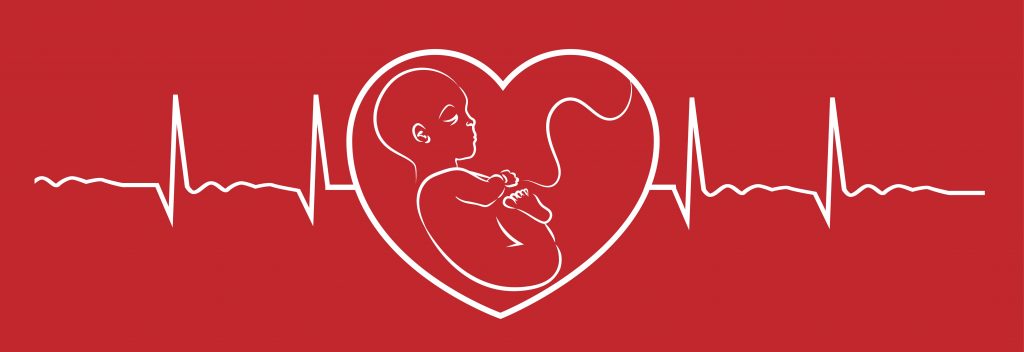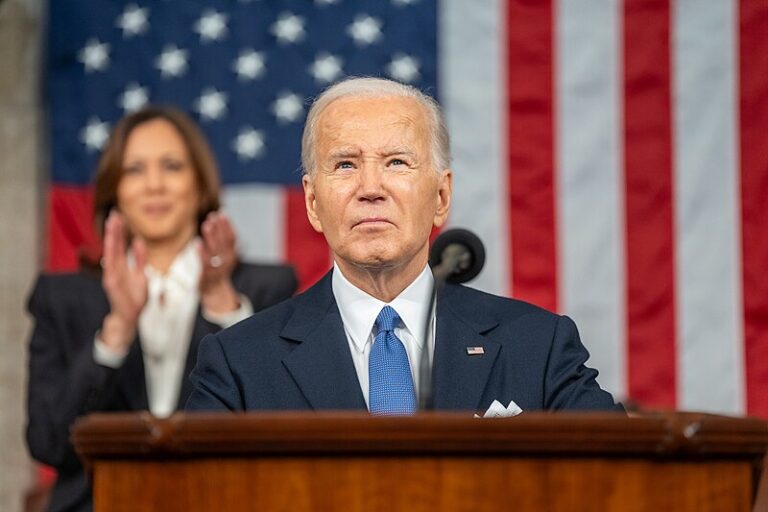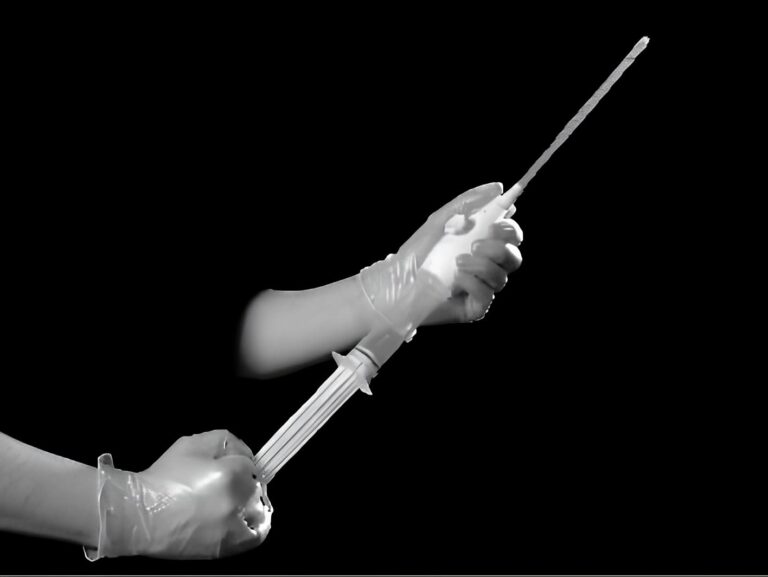With the new year already in full swing, state legislatures across the country are now reconvening. And in many state capitals, pro-life bills are already on the legislative docket.
Last year saw a flurry of states, including Georgia, Kentucky, Louisiana, Mississippi, and Ohio, pass pro-life heartbeat bills banning abortion from the moment a heartbeat can be detected via ultrasound. A sixth state (Missouri) passed an abortion ban at 8 weeks gestation, premised on the fact that a heartbeat can be reliably detected by ultrasound at that gestational age.
Heartbeat bills promise to be an important legislative objective for pro-life advocates in 2020 as well. Several more states are considering heartbeat bills including (so far) South Carolina, Tennessee, Florida, and, for the first time, New Hampshire. Lawmakers in Idaho have also hinted at introducing a first-ever heartbeat bill.
A legislative tracker from the Population Research Institute shows the status of every heartbeat bill ever introduced in state legislatures across the country.
With today’s modern and sensitive ultrasound equipment, a heartbeat can be detected very early in pregnancy. Heartbeat laws effectively ban abortion from about 6-8 weeks gestation, before women in many cases are even aware they are pregnant. Heartbeat laws are among the strongest abortion restrictions passed on the state level in the post-Roe era.
With two new Trump-appointed judges on the Supreme Court, most court watchers believe that the new conservative majority on the Court will either overturn or substantially revise its abortion case law precedent if provided with the right case. Many pro-life advocates believe that a court battle on heartbeat legislation is exactly the kind of case the Court needs to overturn Roe v. Wade, the 1973 decision that legalized abortion in all 50 states.
Tell your lawmakers to support heartbeat legislation as a way to overturn Roe v. Wade. Sign PRI’s heartbeat bill petition.
In South Carolina, the state Senate is in the process of considering a heartbeat bill, H. 3020. State lawmakers in the South Carolina House of Representatives already voted to pass the bill last year on an overwhelming margin with 64 votes in favor and 22 against.
The bill, however, faces a tough battle in the state Senate as a few Republicans have defected, making prospects of the bill’s passage appear dim. Pro-life lawmakers need 26 senators onboard to prevent pro-abortion lawmakers from filibustering the bill. According to an interview with The State, Senate Majority Leader Shane Massey believes he only has 24 votes as of now in favor of the heartbeat bill. There are 27 Republican senators in the South Carolina Senate.
Last Wednesday, South Carolina Governor Henry McMaster held a rally with pro-life supporters at the State House in Columbia to garner support for the bill. “Whenever they pass it, I will sign it,” Gov. McMaster vowed.
- 3020 would ban all abortion in South Carolina after a heartbeat can be detected by ultrasound, except in cases of rape, incest, and in cases of a medical emergency. A previous version of the bill did not contain the rape and incest exceptions, but these were later put back into the bill to win overRepublican lawmakers who were on the fence.
Tennessee is also close to passing a heartbeat bill. Last March, the Tennessee House of Representatives passed heartbeat bill HB 77 on a vote margin of 65-21. The Senate version of the bill (SB 1236) was also amended by the Senate Judiciary Committee to not only ban abortion after a heartbeat can be detected but to also ban abortion of a presumed viable pregnancy as determined by the presence of human chorionic gonadotropin (HCG), a hormone produced by the placenta after implantation and the hormone that is tested for in most over-the-counter pregnancy tests. HCG can be detected as early as 1 week after fertilization. If the amendment is retained and the bill is passed by the Senate this year, the Tennessee heartbeat bill would be a near total ban on abortion.
At present, however, the bill is stalled in the Senate with some among the senate leadership wary about spending public funds on defending the law in court. The Senate had requested a study, that was due by the end of last summer, on how to make the bill withstand a constitutional challenge in court.
Republicans enjoy an overwhelming 85% majority in the Tennessee Senate. Tennessee Governor Bill Lee has promised to sign the heartbeat bill if it reaches his desk.
A heartbeat bill has also been introduced in Florida this year. Florida heartbeat bill HB 271 was introduced by state Rep. Mike Hill in the House on January 14th. The Senate leadership has signaled, however, that the bill will be tough to pass in this bellwether state. Instead, Republicans have focusedtheir efforts on passing a parental consent abortion bill.
Pro-life lawmakers in the blue state of New Hampshire have also taken the bold step of introducing a heartbeat bill, despite the fact that the bill has little chance of passing. New Hampshire heartbeat bill HB 1475 was introduced in the state House of Representatives by Reps. Dave Testerman (Merrimack) and Walter Stapleton (Sullivan). HB 1475 is the first-ever heartbeat bill introduced in the state of New Hampshire.
A public hearing on the heartbeat bill will be held by the House Judiciary Committee on January 29, 2020 at 10:00am in Room 208 of the Legislative Office Building in Concord, New Hampshire.
On the other side of the country in Idaho, state Representative Chad Christensen has said that he, together with Rep. Tammy Nichols, will introduce a heartbeat bill later this year if their bill to ban all abortion fails to pass the state legislature.
Finally, in Iowa, where a county judge last year struck down a heartbeat law the state passed in 2018, lawmakers are looking to amend the state’s constitution to declare that there is no right to abortion Such a pro-life constitutional amendment was necessitated by a 2018 state supreme court decision, in which it read a right to abortion into the Iowa state constitution.
As for the heartbeat bills passed last year and in years past, the federal courts have blocked every one of them, with the sole exception of Louisiana’s. The Louisiana heartbeat law, however, is not currently in effect as it contains a provision that prevents the law from going into effect unless the federal courts first rule that the Mississippi heartbeat law can stand.
Pro-life lawmakers on the state level are keenly aware that their heartbeat laws will be struck down in the federal courts, but continue to pass them with a larger strategy in mind. Pro-life advocates and organizations such as PRI are hoping that the heartbeat laws will trigger lawsuits that will ultimately make their way up to the U.S. Supreme Court, thus providing the Supreme Court with the opportunity to overturn Roe v. Wade.
Heartbeat laws are among the most promising legislative and litigative vehicles for overturning Roe v. Wade and Planned Parenthood v. Casey—the 1992 Supreme Court decision that affirmed key aspects of Roe, including prohibiting states from banning abortion prior to viability.
To date, eight states have passed heartbeat laws. The fact that so many states have passed similar laws may grant the cases more importance in the eyes of the Supreme Court. If one of the lower federal district courts or courts of appeal happens to let one of the heartbeat laws to stand in opposition to the U.S. Supreme Court’s Roe and Casey decisions, it would almost guarantee that the Supreme Court would be forced to take a position on heartbeat legislation.
Heartbeat legislation is also promising because it not only strikes at the heart of Roe but, paradoxically, may also be argued to fall within the scope of Casey. This may provide the Supreme Court’s strict originalist wing with the latitude to justify an abortion ban while keeping within the bounds of its previous jurisprudence.
In Casey, the Supreme Court ruled that states could place restrictions on abortion throughout pregnancy in the interests of protecting the unborn child, but that states could not completely ban abortion prior to viability or impose an “undue burden” on a woman’s decision to have an abortion prior to viability.
When North Dakota’s heartbeat law was being challenged in court in 2015, the Eighth Circuit Court of Appeals ruled that its heartbeat law could not stand due to the Supreme Court’s jurisprudence on abortion. But the court also suggested that there were good reasons for the Supreme Court to reevaluate its previous decisions on abortion.
According to the Eighth Circuit, prohibiting abortion after the point of viability was “unsatisfactory” as it failed to allow for the “substantial state interest in potential life throughout pregnancy” as guaranteed by Planned Parenthood v. Casey. The point of demarcation for when during pregnancy states should be allowed to ban abortion should be “left to the states, which might find their interest in protecting unborn children better served by a more consistent and certain marker than viability,” such as when a heartbeat can be detected via ultrasound.
Every heartbeat law passed brings that day closer.











